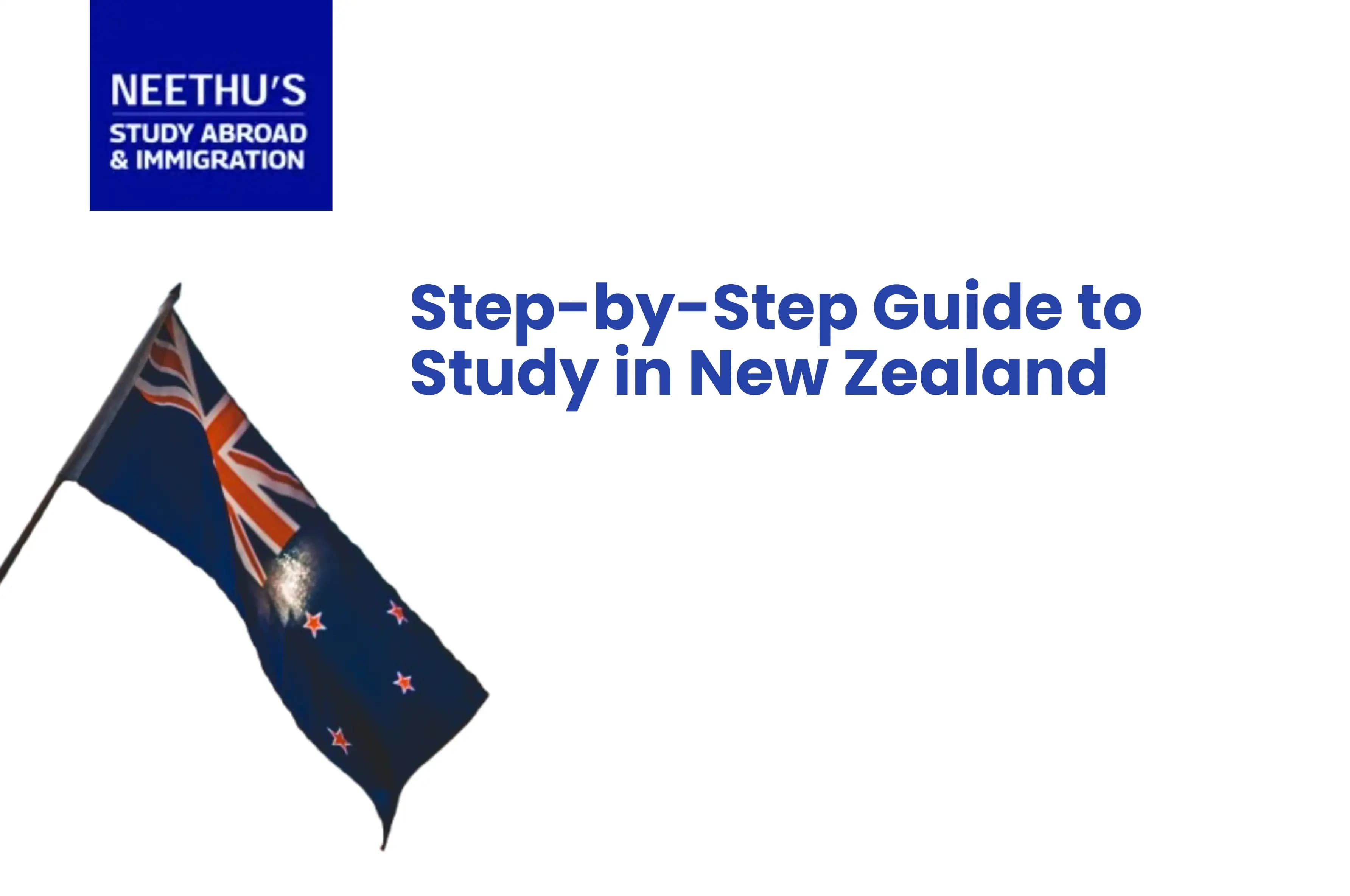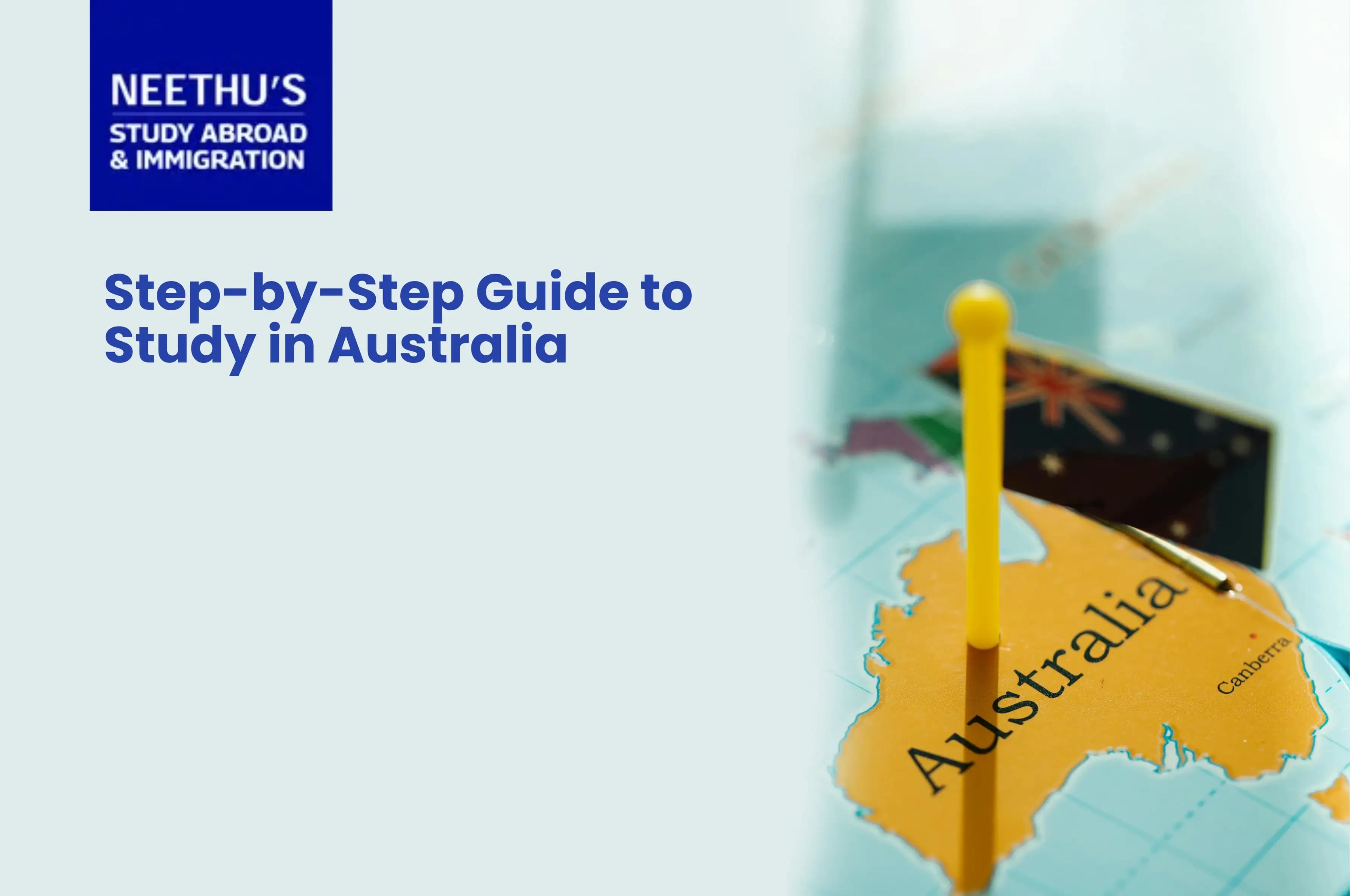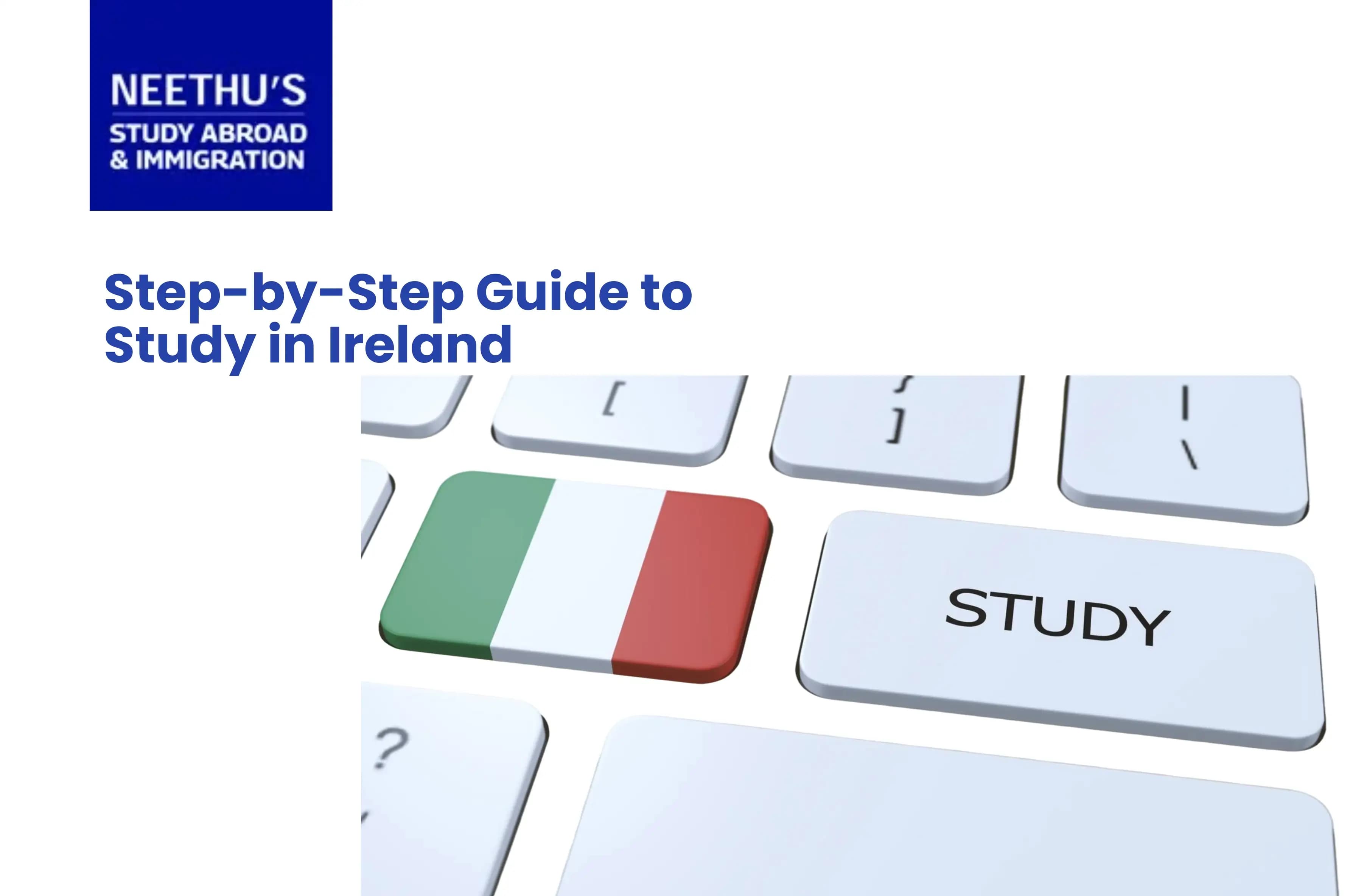Cost of Study in Ireland for Indian Students 2025 | Tuition Fees, Living & Scholarships
_28-10-2025_04-09-08%20PM.webp&w=3840&q=75)
Studying in Ireland is a top choice for Indian students in pursuit of quality education, hospitality, and great career prospects. Ireland's globally acclaimed universities, secure cities, and post-study work prospects make it a bright place to study. But before the move, it's crucial to know the cost of studying in Ireland for Indian students, including tuition fee, living costs, accommodation, and scholarship costs. This guide gives you the full breakdown to enable you to plan your finances sensibly.
Overview – Studying in Ireland for Indian Students
Ireland provides an exceptional mix of educational quality and hospitality. The nation boasts first-class universities such as Trinity College Dublin, University College Dublin, and University of Galway, all of which provide globally respected programs. For Indian students, there are advantages beyond education—students have a lively multicultural environment to experience, the option of part-time work, and the post-study work visa that enables them to remain for as much as two years upon graduating.
But going abroad to study is a significant expense. Knowing the tuition fees in Ireland for Indian students and related living costs will enable you to plan sensibly and prevent added costs along the way of your studies.
Average Tuition Fees by Course and University
Fees for Indian students in Ireland vary with the level of study, area of specialization, and institution. Undergraduate studies are generally lower compared to postgraduate and research-oriented studies.
Undergraduate courses average €10,000 to €25,000 per annum, whereas postgraduate studies are €11,000 to €35,000 per annum. Areas such as medicine, business, and data science are more expensive than arts or humanities.
Here's a general overview by stream:
-
Engineering and Technology: €12,000 – €28,000 per annum
-
Business and Management: €12,000 – €30,000 per annum
-
Medicine and Health Sciences: €30,000 – €55,000 per annum
-
Arts and Humanities: €10,000 – €20,000 per annum
-
Computer Science and IT: €14,000 – €25,000 per annum
Among the premier institutions, Trinity College Dublin and University College Dublin are at the higher side, followed by Dublin City University and University of Limerick, which charge slightly less tuition fees. In addition to tuition fees, students need to factor in additional expenses like registration fees, examination fees, and student union fees, which amount to approximately €200–€500 every year.
Living Expenses in Ireland
Outside tuition fees, Indian students' living cost in Ireland constitutes a large proportion of the overall expenditure. The typical yearly living expense varies between €10,000 and €15,000, depending on the city and living style.
Dublin, as the capital city, is the most costly, then Cork and Galway. Smaller cities such as Limerick or Waterford are comparatively affordable. An average student in Dublin could require €1,200 to €1,500 monthly, whereas staying in smaller cities would require €800 to €1,100 monthly.
When a student applies for a student visa, the Irish Naturalisation and Immigration Service (INIS) asks for evidence of at least €10,000 annually to ensure financial ability for living expenses.
Student Accommodation Expenses
Proper accommodation is important to ensure comfort and budgeting. The expense of accommodation depends on the nature and location of the building.
On-Campus Accommodation:
University residence halls usually range from €600 to €1,200 per month. They are easy and come with amenities like internet and electricity, so they are best suited for first-year students.
Off-Campus/Private Rentals:
Off-campus or private apartment rentals or sharing accommodation with fellow students usually range from €500 to €1,000 per month. Sharing a flat with friends is a common and affordable choice for Indian students.
Homestay Options:
Homestays are also provided by many Irish families to international students at around €700 to €900 per month, sometimes including meals. This is also a supportive local environment.
Students should book early, particularly in Dublin, where the demand is high towards the beginning of the academic year.
Food, Transport, and Other Everyday Costs
Day-to-day expenditure is another important facet of financial planning for living in Ireland.
-
Food: The cheapest way to eat is cooking at home, with monthly food expenses between €250 and €400. Student prices are available at supermarkets such as Lidl, Aldi, and Tesco. Regular eating out can double the cost of food.
-
Transport: Savings can be made using the Leap Card, with cheaper fares on buses, trams, and trains. Monthly transportation costs are usually between €70 and €120, depending on distance and how often one travels.
-
Utilities and Internet: Bills might be covered by shared accommodation, but if not, budget €60 to €100 per month for electricity, heating, and Wi-Fi.
-
Personal and Miscellaneous Expenses: Set aside €100–€150 monthly for mobile recharge, entertainment, and personal care.
In total, a modest student can budget between €800 and €1,200 monthly, based on lifestyle.
Health Insurance and Additional Costs
Health insurance is required for all non-EU students. Private health insurance in Ireland costs between €150 and €250 annually, varying with policy. It's a nominal but necessary investment since it's needed for student visa approval and for medical emergencies.
Additional costs are:
-
Visa fees: €60–€100 based on duration
-
Irish Residence Permit (IRP): €300
-
Books and course materials: €200–€400 per year
-
Laptop or study equipment: €500–€1,000 (one-time cost)
While these expenses might seem minor, they can add up over time, so it’s best to plan ahead.
Scholarships and Financial Aid Options
To make studying in Ireland more affordable, many universities and government bodies offer scholarships and financial aid to Indian students. These scholarships can significantly reduce tuition costs and, in some cases, cover living expenses.
Popular scholarships include:
-
Government of Ireland International Education Scholarship: Covers full tuition plus a €10,000 living stipend.
-
Trinity College Dublin Global Excellence Scholarship: Offers €2,000 to €5,000 tuition fee reduction.
-
University College Dublin Global Scholarship: Provides up to 50% off tuition fees.
-
Centenary Scholarship Programme (Dublin Institute of Technology): Offers full or partial tuition coverage.
-
Education in Ireland Scholarships: Funded jointly by Irish universities and the government.
Most scholarships are merit-based, and applying early increases your chances of success.
Budgeting Tips for Indian Students in Ireland
Studying abroad requires financial discipline, and a few smart strategies can make your budget go further.
-
Plan early: Research living costs and university fees before applying.
-
Apply for scholarships: Don’t miss deadlines for financial aid and bursaries.
-
Cook your meals: Home-cooked food can save hundreds of euros monthly.
-
Split accommodation: Rent and utilities fall considerably when split.
-
Get student discounts: Most shops, eateries, and transport operators have student discounts.
-
Monitor spending: Financial tracking apps such as Mint or YNAB can be used to monitor monthly expenditure.
-
Get part-time work: Students can lawfully work up to 20 hours a week during semester and 40 hours over holidays, which goes some way to covering costs.
With careful budgeting, it is possible to afford studying in Ireland.
Comparison of Costs: Ireland vs Other Study Destinations
|
Country |
|
Average Living Cost |
Total Yearly Cost (Approx.) |
||||||
|
Ireland |
|
|
€22,000–€40,000 |
||||||
|
UK |
£15,000–£30,000 |
£12,000–£18,000 |
£27,000–£48,000 |
||||||
|
USA |
|
$12,000–$20,000 |
|
||||||
|
Canada |
|
|
|
In summary, Ireland offers fantastic learning prospects with a fairly moderate financial cost, which makes it an intelligent investment for long-term professional development.
Conclusion – Managing Study Costs in Ireland
The cost of study in Ireland for Indian students depends on your course, university, and lifestyle, but with proper planning, it can be managed effectively. Ireland offers not just high-quality education but also valuable global exposure and professional opportunities. By budgeting wisely, applying for scholarships, and utilizing part-time work, Indian students can enjoy a fulfilling and affordable study experience in one of Europe’s most dynamic educational destinations.
Frequently Asked Questions
How expensive is studying in Ireland for Indian students?
The overall yearly cost of studying, including tuition fees and living cost, is between €22,000 and €40,000.
Is it cheaper to study in Ireland compared to the UK?
Yes, studying in Ireland is generally less expensive than in the UK, with just a bit less tuition fees and living costs.
Are there part-time jobs available to pay expenses in Ireland?
Yes, students are allowed to work up to 20 hours a week during semesters and 40 hours during holidays to support themselves.
What scholarships are available for Indian students in Ireland?
Scholarships like the Government of Ireland Scholarship, UCD Global Scholarship, and Trinity Excellence Awards significantly decrease costs.






















_03-12-2025_01-17-26%20PM.webp&w=3840&q=75)
_02-12-2025_03-07-49%20PM.webp&w=3840&q=75)

_27-11-2025_04-06-24%20PM.webp&w=3840&q=75)
_25-11-2025_04-38-18%20PM.webp&w=3840&q=75)
_24-11-2025_03-20-26%20PM.webp&w=3840&q=75)
_22-11-2025_12-44-47%20PM.webp&w=3840&q=75)
_21-11-2025_04-17-47%20PM.webp&w=3840&q=75)
_20-11-2025_03-55-26%20PM.webp&w=3840&q=75)
_18-11-2025_04-00-40%20PM.webp&w=3840&q=75)
_15-11-2025_10-48-43%20AM.webp&w=3840&q=75)
%20(1)_14-11-2025_03-52-25%20PM.webp&w=3840&q=75)
_13-11-2025_03-02-38%20PM.webp&w=3840&q=75)
_08-11-2025_04-15-36%20PM.webp&w=3840&q=75)
_05-11-2025_04-01-50%20PM.webp&w=3840&q=75)
_05-11-2025_03-46-26%20PM.webp&w=3840&q=75)
_03-11-2025_03-31-09%20PM.webp&w=3840&q=75)
_04-11-2025_.webp&w=3840&q=75)
_04-11-2025_.webp&w=3840&q=75)
_24-10-2025_05-10-31%20PM.webp&w=3840&q=75)
_24-10-2025_04-55-51%20PM.webp&w=3840&q=75)
_22-10-2025_04-40-20%20PM.webp&w=3840&q=75)
%20(1)_21-10-2025_03-05-46%20PM.webp&w=3840&q=75)
_21-10-2025_02-43-15%20PM.webp&w=3840&q=75)
_17-10-2025_05-08-52%20PM.webp&w=3840&q=75)
_17-10-2025_04-54-54%20PM.webp&w=3840&q=75)
_15-10-2025_03-46-47%20PM.webp&w=3840&q=75)
_14-10-2025_03-42-40%20PM.webp&w=3840&q=75)
_14-10-2025_03-29-48%20PM.webp&w=3840&q=75)
_13-10-2025_03-48-51%20PM.webp&w=3840&q=75)
_11-10-2025_04-28-42%20PM.webp&w=3840&q=75)
%20(1)_09-10-2025_04-12-08%20PM.webp&w=3840&q=75)

_07-10-2025_02-55-25%20PM.webp&w=3840&q=75)
_07-10-2025_02-39-51%20PM.webp&w=3840&q=75)
_06-10-2025_03-42-37%20PM.webp&w=3840&q=75)
_03-10-2025_04-42-59%20PM.webp&w=3840&q=75)
_01-10-2025_11-12-12%20AM.webp&w=3840&q=75)
%20(1)_29-09-2025_02-54-12%20PM.webp&w=3840&q=75)

_26-09-2025_12-14-18%20PM.webp&w=3840&q=75)
_24-09-2025_04-44-26%20PM.webp&w=3840&q=75)
_23-09-2025_04-14-36%20PM.webp&w=3840&q=75)
_22-09-2025_04-08-09%20PM.webp&w=3840&q=75)
_20-09-2025_03-26-03%20PM.webp&w=3840&q=75)
_17-09-2025_04-06-42%20PM.webp&w=3840&q=75)
_15-09-2025_04-43-43%20PM.webp&w=3840&q=75)
_13-09-2025_12-17-49%20PM.webp&w=3840&q=75)
_12-09-2025_04-31-36%20PM.webp&w=3840&q=75)
_12-09-2025_04-17-03%20PM.webp&w=3840&q=75)
_10-09-2025_03-59-59%20PM.webp&w=3840&q=75)
_09-09-2025_04-11-16%20PM.webp&w=3840&q=75)
_09-09-2025_03-53-52%20PM.webp&w=3840&q=75)




















































_12-06-2025_03-40-35%20PM.webp&w=3840&q=75)

